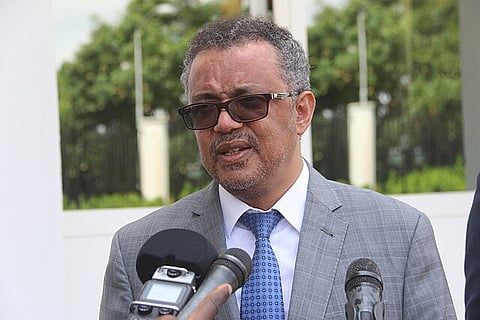

End of Global Emergency Declaration
World Health Organization (WHO) Director-General Dr. Tedros Adhanom Ghebreyesus announced the end of the mpox Public Health Emergency of International Concern (PHEIC) on September 5, 2025, following advice from an independent emergency committee. The decision reflects sustained declines in cases and deaths in key affected countries, including the Democratic Republic of the Congo (DRC), Burundi, Sierra Leone, and Uganda. The committee, which met every three months since the emergency was declared in August 2024, noted improved understanding of transmission drivers and strengthened response capacities in affected nations. However, Dr. Tedros emphasized that the threat remains, particularly for vulnerable groups like children and people living with HIV.
Continental Emergency in Africa Persists
Despite the global downgrade, the Africa Centres for Disease Control and Prevention (Africa CDC) extended its Public Health Emergency of Continental Security (PHECS), citing fragile gains and the need for sustained resources. The agency warned that mpox continues to surge in Ghana, Liberia, Kenya, Zambia, and Tanzania, with new cases reported in Malawi, Ethiopia, Senegal, Togo, Gambia, and Mozambique. The divergence between global and continental alerts underscores ongoing challenges in Africa, where limited funding, healthcare infrastructure gaps, and logistical hurdles persist. Africa CDC stressed that maintaining emergency status is critical for political will and resource mobilization.
Epidemiological Context and Variants
Mpox, caused by an orthopoxvirus, has two primary clades: Clade I (endemic to Central Africa) and Clade II (prevalent in West Africa). The recent emergency was driven by Clade Ib, a subvariant identified in eastern DRC in 2023, which spread through sexual networks and reached non-endemic countries like Thailand and Sweden. Clade Ia, affecting children via animal-to-human transmission, remains a concern in central DRC. While Clade Ib has a lower fatality rate than Clade Ia, both pose significant risks in regions with limited healthcare access. The WHO’s decision to end the PHEIC does not affect standing recommendations for surveillance and vaccination, which remain in place until August 2026.
Response Efforts and Challenges
Global response efforts included the delivery of 3 million vaccine doses to 12 countries, with nearly 1 million administered. However, funding shortfalls and logistical barriers hinder progress. The Norwegian Refugee Council highlighted a drastic reduction in staff and resources compared to 2023, leaving a $1.9 million gap for emergency response. Additionally, complex terrain in affected regions, such as Kunar province in Afghanistan, complicates aid delivery. The WHO and partners continue to prioritize surveillance, community engagement, and equitable vaccine access, but sustained international support is needed to prevent resurgence.
Future Outlook and Recommendations
The WHO urges continued vigilance, noting that mpox remains a significant threat in Africa due to climate change, economic instability, and displacement crises. The organization extended Emergency Use Listing for vaccines and diagnostics to facilitate ongoing response. Key priorities include strengthening healthcare systems, addressing stigma, and ensuring funding for high-risk regions. The global community must balance celebrating progress with maintaining urgency to avoid repeating the cycles of neglect that characterized earlier mpox outbreaks.